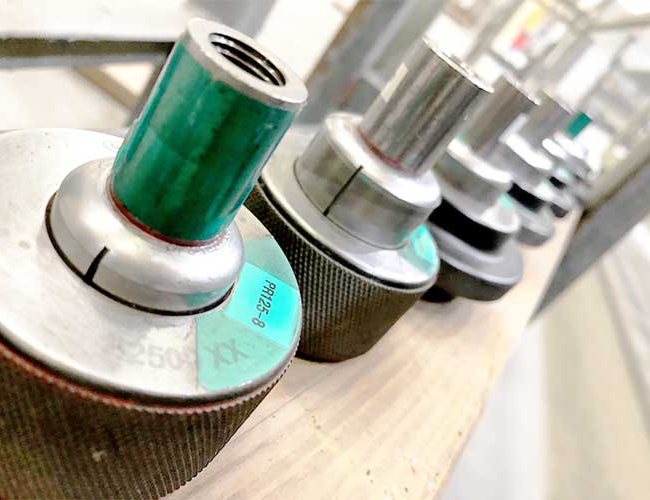Electroless Nickel: The Optimal Choice for Corrosion Protection
Electroless Nickel: The Optimal Choice for Corrosion Protection
Blog Article
In the demanding landscape of industrial environments, metal components face relentless threats from corrosion. Harsh chemicals, moisture, and extreme temperatures can lead to the deterioration of metal parts, necessitating effective protective measures. The impact of corrosion is significant, resulting not only in costly repairs and replacements but also in operational downtimes that disrupt productivity. As a result, applying effective anti-corrosion coatings is crucial, and electroless nickel plating has proven to be one of the most reliable solutions available.
This article delves into the importance of anti-corrosion coatings, compares various protection methods, and explains why electroless nickel plating is often regarded as the superior choice for safeguarding industrial equipment and parts.
The Importance of Anti-Corrosion Coatings
Metal parts used in industrial applications are frequently exposed to factors that can accelerate corrosion. Without protective coatings, these components are susceptible to rust, oxidation, and other forms of deterioration that can compromise their structural integrity. The financial ramifications of replacing corroded parts can be substantial, and the resulting downtime can have further economic impacts.
Anti-corrosion coatings are essential for protecting metal surfaces from these detrimental effects. There are several types of coatings available, including powder coating, electroplating with nickel, and electroless nickel plating.
Comparing Coating Methods
- Powder Coating: This technique involves applying a dry powder to a metal surface, which is then cured under heat to create a solid protective layer. Powder coating is effective against corrosion and provides an attractive finish; however, it may not perform as well in high-friction applications, where it can chip or crack over time.
- Electroplating with Nickel: In this process, an electric current is used to deposit a nickel layer onto the metal part. While electroplating offers a strong and uniform coating, it requires a conductive surface and may not achieve consistent coverage on complex shapes.
- Electroless Nickel Plating: This method sets itself apart by using a chemical bath to deposit a nickel-phosphorus alloy uniformly across the metal surface, independent of electrical current. This allows for even coverage on intricate parts, making electroless nickel plating ideal for components that need robust protection against corrosion, wear, and friction.
Why Electroless Nickel Plating is the Superior Choice
Electroless nickel plating offers numerous advantages, making it a preferred method for protecting metal components:
- Uniform Coverage: One of the standout features of electroless nickel plating is its ability to provide a consistent coating, regardless of the part's shape or complexity. This is particularly beneficial for intricate components such as production tubing, gears, and valves. Industries reliant on the durability of metal parts, like oil and gas, greatly benefit from electroless nickel coating for barrels, ensuring comprehensive protection.
- Outstanding Corrosion Resistance: Electroless nickel plating delivers exceptional resistance to corrosion, especially in environments that expose components to chemicals, saltwater, or acidic conditions. The coating acts as a barrier, preventing the base metal from reacting with these harsh elements, which is crucial for industries such as petrochemical and marine engineering.
- Enhanced Wear Resistance: In addition to its corrosion protection, electroless nickel plating increases the hardness and wear resistance of metal parts. This makes it an excellent option for components subjected to high friction, such as gears and extraction tubes, reducing the risk of metal fatigue.
- Durability: The uniform thickness achieved through the electroless process enhances the durability of even the most delicate parts. This ensures that metal plating for steel pipes and parts in industries such as construction and manufacturing remains effective even after extensive use.
- Cost-Effective Solution: While the initial investment in electroless nickel plating may be higher compared to other methods, its long-term benefits, such as reduced maintenance and replacement costs, make it a cost-effective choice. The extended lifespan of coated parts translates to significant savings over time.
Choosing the Right Plating Partner
Selecting a reliable partner for anti-corrosion coatings is essential for achieving optimal results. An experienced industrial metal plating company in Texas can provide the expertise needed to apply the appropriate type of coating based on your specific requirements. Whether you need protection for steel pipes, valves, or production tubing, choosing the right coating solution is critical for the longevity and performance of your equipment.
For businesses in sectors like oil and gas, working with anti corrosion metal coaters that specialize in electroless nickel plating can significantly mitigate the risk of part failure and extend the life of machinery and equipment.
In conclusion, protecting metal components from corrosion, friction, and wear is vital for maintaining the performance and longevity of industrial equipment. Although there are various coating options available, including powder coating and electroplating, electroless nickel plating distinguishes itself with its uniform coverage, exceptional corrosion resistance, and durability. Whether your needs involve metal plating for steel pipes and parts or specialized electroless nickel coating for barrels, this method provides reliable, long-term protection.
For companies seeking to invest in the best anti-corrosion solutions, collaborating with an experienced industrial metal plating company in Texas ensures that your parts are expertly protected and ready to endure even the harshest environments.
Report this page